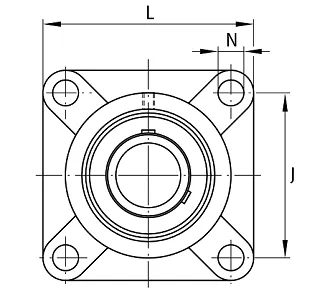Sep . 23, 2024 11:38 Back to list
Top Manufacturers of DC Motor Bearings for Optimal Performance and Longevity
Understanding DC Motor Bearing Manufacturers
DC motors play a crucial role in various industrial and consumer applications, from electric vehicles to household appliances. At the heart of these motors is the bearing, a component that provides support and enables smooth rotation of the motor shaft. Selecting the right bearing is vital for ensuring the performance, efficiency, and longevity of a DC motor. This article aims to explore the significance of DC motor bearing manufacturers and the factors to consider when choosing a bearing for your application.
The Role of Bearings in DC Motors
Bearings are essential for reducing friction between the moving parts of a motor. In DC motors, they facilitate the smooth rotation of the rotor while minimizing wear and tear. Properly designed and manufactured bearings enhance motor performance by improving efficiency, reducing energy consumption, and extending the service life of the motor. Additionally, the right bearing helps to maintain precise alignment of the rotor, which is critical for the accurate functionality of the motor.
Types of Bearings Used in DC Motors
There are several types of bearings commonly used in DC motors, including
1. Ball Bearings These are the most widely used bearings due to their ability to handle both radial and axial loads. They are known for their low friction and high-speed capabilities, making them ideal for various DC motor applications.
2. Sleeve Bearings Also referred to as bushings, these are simpler in design and are often used in applications where cost is a concern. They provide reliable performance but may not support high-speed operations as effectively as ball bearings.
3. Magnetic Bearings Emerging as an advanced technology, magnetic bearings use magnetic fields to support the rotor, eliminating mechanical contact and enhancing efficiency. They are typically employed in high-performance applications but are also more expensive.
Factors to Consider When Choosing a Bearing Manufacturer
dc motor bearing manufacturers

When selecting a DC motor bearing manufacturer, several factors should be considered to guarantee that the bearings meet the required performance specifications
1. Quality Standards It’s essential to choose a manufacturer that adheres to international quality standards. Certifications like ISO 9001 can be indicators of a manufacturer’s commitment to quality and consistency.
2. Material and Design Expertise The materials used in the bearing's construction significantly affect its performance. Top manufacturers utilize high-quality steel and advanced composites to ensure durability and reliability. Additionally, they have expertise in designing bearings that meet specific load and speed requirements.
3. Customization Capabilities Different applications may require unique bearing designs. A good manufacturer should offer customization options to tailor bearings to specific motor specifications and performance requirements.
4. Research and Development Innovative manufacturers invest in R&D to develop advanced bearing technologies. This can include improvements in lubrication methods, bearing shapes, and materials to enhance efficiency and reduce maintenance needs.
5. Customer Support and Service Excellent customer service can make a remarkable difference. A manufacturer that provides support for installation, maintenance, and troubleshooting can save time and resources in the long run.
6. Reputation and Reviews Researching and reviewing feedback from other clients can provide insights into a manufacturer’s reliability and the quality of their products.
Conclusion
Selecting the right DC motor bearing manufacturer is a fundamental decision that affects the performance, efficiency, and lifespan of your motors. By considering factors such as quality standards, materials, customization options, and customer service, you can make an informed choice that aligns with your specific motor application needs. As technology continues to evolve, partnering with a reputable manufacturer will ensure you remain at the forefront of performance and reliability in your DC motor applications.
Latest news
-
25MM 2 BOLT UCFLX05-14 Flange bearing unit( oval)
NewsMar.07,2025
-
4 bolt UCF 200 series Pillow block bearings
NewsMar.07,2025
-
25MM 2 BOLT UCFLX05-14 Flange bearing unit( oval)
NewsMar.07,2025
-
UCF216-50 4-Bolt Flange Housing Square Bearing
NewsMar.07,2025
-
25MM 2 BOLT UCFLX05-14 Flange bearing unit( oval)
NewsMar.07,2025
-
spherical roller bearing material exporter
NewsMar.07,2025





